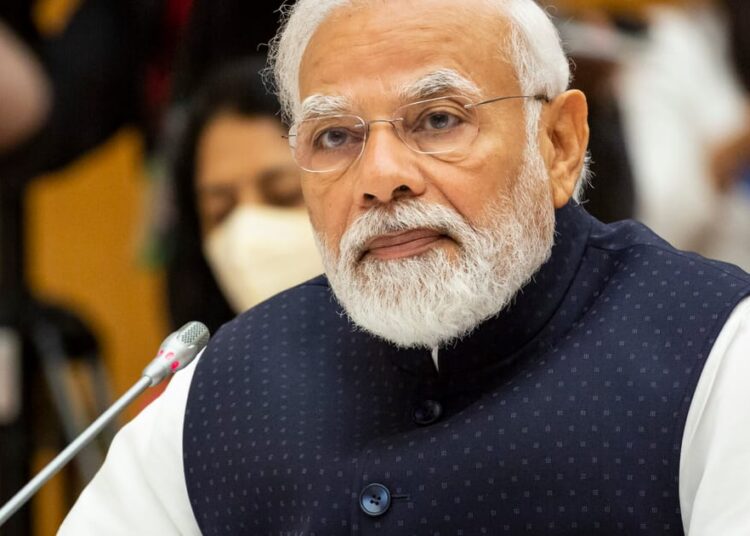Mohit Anand is a professor of international business and strategy at the EMLYON Business School in France.
The G20 summit that concluded in Bali last month provided the world’s leading economies with a platform to hear and be heard on global issues.
The core purpose of the G20 has always been to recognize the importance of collective action and inclusive collaboration among major developed countries and emerging economies around the world. And as a leading multilateral platform, it holds a strategic role in securing future global economic growth and prosperity, as its members represent over 85 percent of global GDP, 75 percent of global trade and two-thirds of the world’s population.
India assumed the G20 presidency in December and, not surprisingly, the ongoing Ukraine conflict, the COVID-19 recovery and global economic stability will all continue to be part of the major discourse for 2023. While at the helm of framing the platform’s priorities, however, New Delhi now has the chance to play an important role in shaping and strengthening global architecture and governance on all major international economic issues.
The war in Ukraine and its implications — including food and energy security — figured particularly highly in the talks in Bali. However, as expected, no diplomatic headway was made to arrive at a substantive breakthrough, despite the fact that most countries deplore Russia’s aggression, which is causing immense human suffering and exasperating existing fragilities in the global economy — constraining growth, increasing inflation, disrupting supply chains, heightening food and energy insecurity and elevating financial stability risks.
From a geopolitical perspective, this means India could take the opportunity to leverage its historical and amenable ties with Russia, and bring a more isolated Moscow to the discussion and diplomacy roundtable of over 200 G20 meetings to follow. It could use its platform to address the Ukraine conflict, strategizing for peace and a path toward reconciliation as much as possible. After all, the G20 communique that “today’s era must not be of war” echoes Prime Minister Narendra Modi’s message to Russian President Vladimir Putin from just a few months ago.
And while it’s recognized that the G20 isn’t necessarily the forum to resolve security issues, it’s evolved into a leading platform for economic cooperation. Such matters still have significant consequences for the global economy. Hence, it’s incumbent upon the G20 to address these issues as much as possible, particularly when the U.N. and other bilateral interventions have failed to diffuse the conflict.
This is another way in which India’s role can be critical, as it can reflect upon the hits and misses of the Bali summit and learn how to make this multilateral forum more relevant. And even though the Ukraine conflict, coupled with heightening geopolitical tensions due to the rise of an assertive China, will test India’s leadership and its ability to revive the G20’s credibility in an otherwise declining era of multilateralism, New Delhi aspires to a presidency that will be “inclusive, ambitious, decisive and action-oriented.”
India is also at the center of a troika of G20 presidencies — of Indonesia, India and Brazil, respectively — all of them emerging economies, thus, providing a greater voice for making the concerns of the “Global South” heard at a very crucial juncture for the international community. This could be another anchor for India, bridging the gap between the West and the Global South on issues such as climate change, trade facilitation and health care resilience support.
Whether at climate talks, negotiating for a fairer deal in terms of technological and financial support for developing countries; at the World Trade Organization, on issues related to lowering tariff and non-tariff barriers for vulnerable economies; or at the World Health Organization, for a patent waiver on COVID-19 vaccines, India has championed the cause of low-income nations in the past — and it could now do so again. This time, working toward adopting a Sustainable Development Goals stimulus package to provide these governments with investments and liquidity, offering debt relief and restructuring.
Continuing to underscore these issues, India has identified six shared priorities in areas including public digital goods and digital infrastructure; climate action, climate finance and technology collaborations; the clean, sustainable and inclusive energy transition; accelerated progress on sustainable development goals; women-led development; and multilateral reforms.
Prime Minister Modi also suggested that “data for development” will be an integral part of India’s presidency. The digital transformation shouldn’t be confined to a small part of humanity, and its greater benefits will be realized only when digital access becomes truly inclusive. India’s own experience in the past few years has shown that if digital architecture is made widely accessible, it can bring about socioeconomic transformation.
Thus, under its presidency, India will have to navigate a delicate balance, overcoming partisan pressures from both sides to bridge the East-West conflict. And it will have to do so while carefully wading through issues central to its own strategic self-interests as well as those of the global community, creating an archetype for substantive talks, implementation and outcome for the G20 next year, culminating with a leader’s summit to be held in New Delhi in September 2023.
Championing the virtue of “Vasudhaiva Kutumbakam” — the world is one family — as its G20 theme, India needs to skillfully manage this disorderly family in the year ahead. And through this leadership role, it must give priority to a developmental agenda, while creating a blueprint for a faster, more resilient and inclusive global economic recovery.
The G20 presidency gives India an unprecedented opportunity to test its clout and credibility in tackling the fragmented global order — and now it needs to embrace it.
Read the full article here

